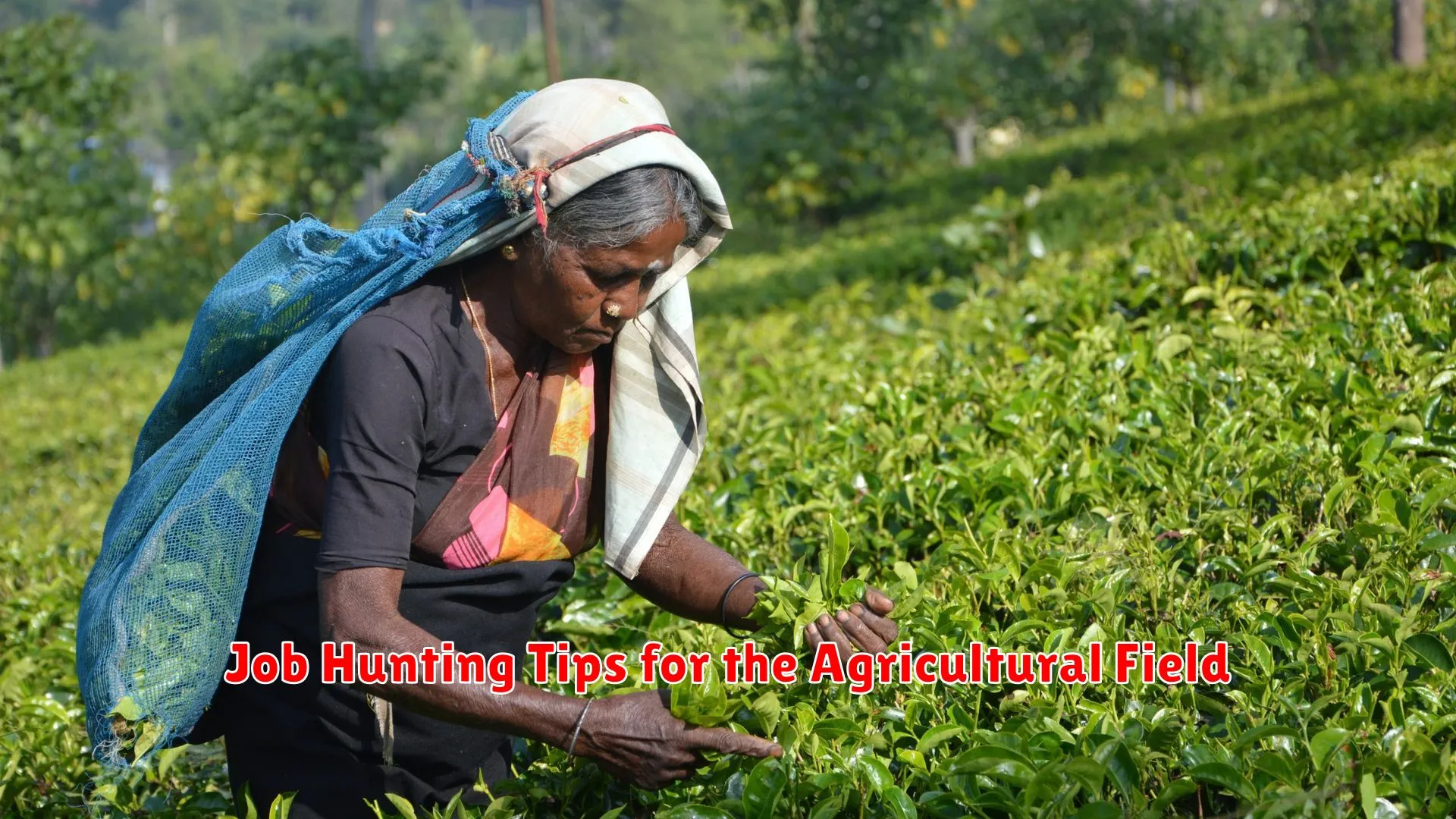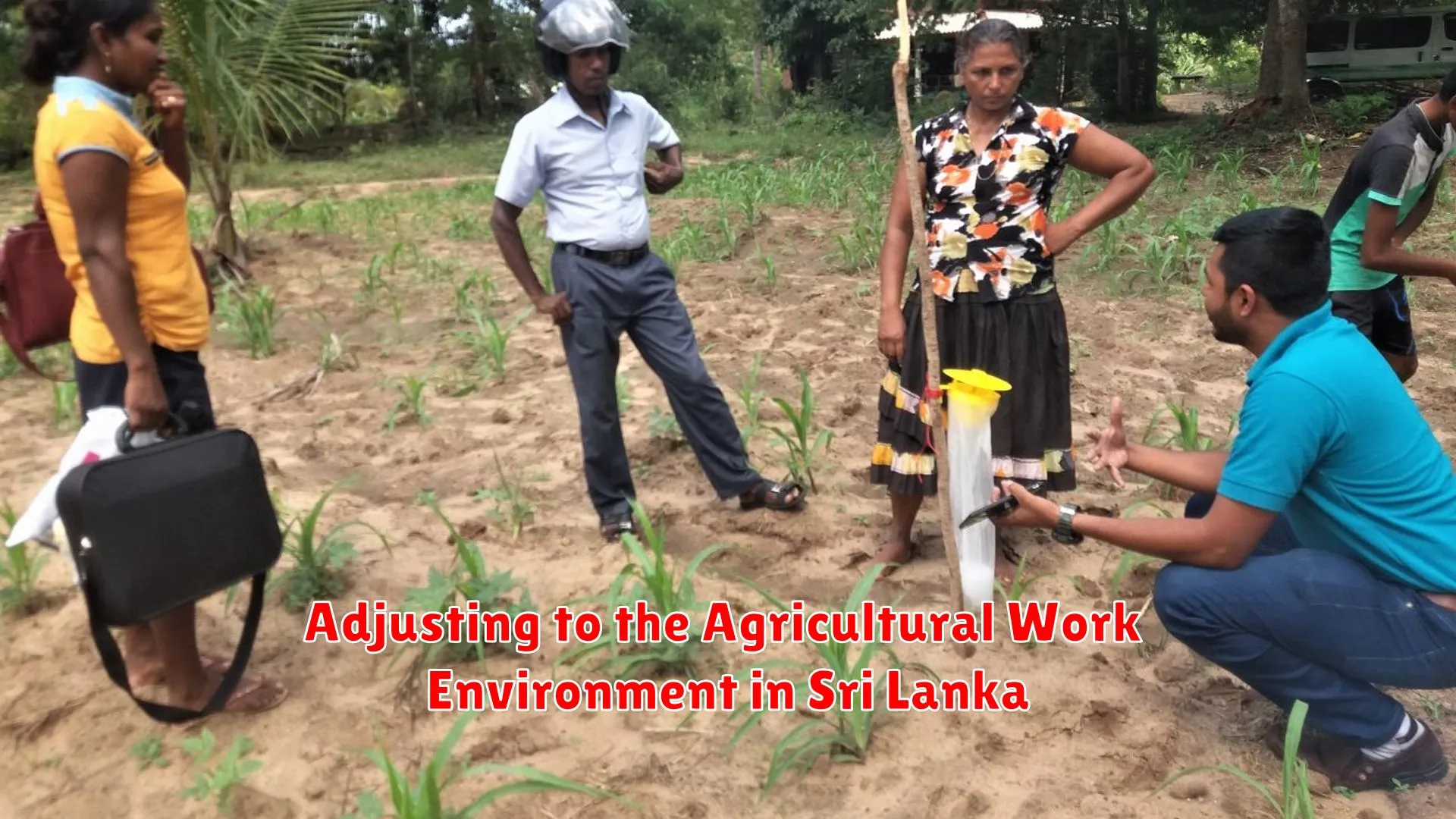
Explore the opportunities and challenges of carving a successful career in Sri Lanka’s dynamic agricultural sector, where innovation, sustainability, and growth converge.
Current State of Agriculture in Sri Lanka
In recent years, the agricultural sector in Sri Lanka has witnessed significant developments and challenges. Agriculture remains a vital part of the country’s economy, employing a large percentage of the population and contributing to food security and economic growth.
1. Importance of Agriculture: Agriculture plays a crucial role in Sri Lanka’s economy by providing employment opportunities, contributing to GDP, and ensuring food security for its population. The country’s diverse landscape allows for a variety of crops to be grown, including rice, tea, rubber, and vegetables.
2. Challenges Faced: Despite its importance, the agricultural sector in Sri Lanka faces several challenges. These include climate change impacts, limited access to modern technology and resources, land fragmentation, and the aging farmer population. These challenges hinder the sector’s full potential for growth.
3. Government Initiatives: To address these challenges and enhance the agricultural sector, the Sri Lankan government has initiated various programs and policies. These include providing subsidies for farmers, promoting organic farming practices, improving irrigation systems, and investing in agricultural research and development.
4. Opportunities for Growth: Despite the challenges, Sri Lanka’s agricultural sector also offers opportunities for growth and innovation. There is increasing focus on value-added products, agro-tourism, and sustainable farming practices. Young aspiring individuals are encouraged to explore careers in agriculture to contribute to the sector’s development.
5. Conclusion: The current state of agriculture in Sri Lanka reflects a mix of challenges and opportunities. By addressing the existing challenges through government initiatives and embracing innovative approaches, the agricultural sector has the potential to further contribute to the country’s economic development and food security.
Promising Agricultural Careers

Building a career in Sri Lanka’s agricultural sector opens up various promising opportunities for individuals passionate about agriculture and sustainable practices. Here are some of the top agricultural careers to consider:
1. Agricultural Scientist
Agricultural scientists play a crucial role in researching and developing innovative farming practices, crop production techniques, and environmental conservation methods. They work to enhance agricultural productivity while promoting sustainability.
2. Agronomist
As an agronomist, individuals focus on soil management, crop production, and pest control. They provide expertise to farmers on improving crop yields and implementing efficient farming practices.
3. Agricultural Engineer
Agricultural engineers design and develop machinery and equipment tailored to the needs of farm operations. They work on creating technology solutions to enhance efficiency and productivity in agriculture.
4. Farm Manager
Farm managers oversee day-to-day operations on agricultural properties. They are responsible for planning, organizing, and supervising activities related to crop production, livestock care, and farm maintenance.
5. Food Scientist
Food scientists focus on ensuring food safety, quality, and nutritional value throughout the food production chain. They work on developing new food products and improving existing ones.
6. Agricultural Marketing Specialist
Agricultural marketing specialists help farmers and agricultural businesses promote their products effectively. They develop marketing strategies, conduct market research, and identify opportunities to maximize sales.
Embarking on a career in these promising agricultural fields can lead to fulfilling work experiences and contribute to the growth and sustainability of Sri Lanka’s agricultural sector.
Necessary Skills for Agricultural Jobs
When considering a career in Sri Lanka’s agricultural sector, having a set of specific skills can greatly enhance your chances of success and advancement within the industry. Here are some crucial skills that are necessary for agricultural jobs in Sri Lanka:
- Technical Knowledge: Proficiency in agricultural practices, crop management, livestock care, and pest control is essential for agricultural jobs. A strong understanding of sustainable farming techniques and the use of modern agricultural machinery is also highly valued.
- Problem-Solving Abilities: Agricultural jobs often present various challenges, from crop diseases to adverse weather conditions. The ability to analyze problems, identify solutions, and implement effective strategies is vital for success in this field.
- Adaptability: The agricultural sector is dynamic, with constant changes due to technological advancements, market demands, and environmental factors. Being adaptable and open to learning new methods and technologies is crucial for staying competitive.
- Communication Skills: Effective communication is key in agricultural jobs, whether it involves working with fellow farmers, interacting with suppliers and customers, or collaborating with government officials. Strong communication skills help in conveying ideas, negotiating deals, and resolving conflicts.
- Business Acumen: Understanding basic business principles such as cost management, budgeting, and marketing is essential for those looking to succeed in agricultural jobs. Being able to make informed decisions that drive profitability and sustainability is critical.
- Passion for Agriculture: To excel in agricultural jobs, having a genuine passion for farming and a deep appreciation for the agricultural sector is invaluable. Passion fuels motivation, perseverance, and a commitment to overcoming challenges.
By honing these necessary skills and qualities, individuals can build a successful career in Sri Lanka’s agricultural sector and contribute to the sustainable growth of the country’s agricultural industry.
Job Hunting Tips for the Agricultural Field

When it comes to building a successful career in Sri Lanka’s Agricultural Sector, job hunting strategies play a crucial role in finding the right opportunities. Here are some essential tips to consider when seeking employment in the agricultural field:
1. Develop a Strong Network
Networking is key in the agricultural industry. Attend industry events, seminars, and conferences to connect with professionals in the field. Utilize online platforms like LinkedIn to expand your network and explore job openings.
2. Gain Relevant Experience
Internships and volunteer work can provide valuable experience in agriculture. Consider opportunities to work on farms, research projects, or with agricultural organizations to enhance your skills and knowledge in the field.
3. Stay Informed and Updated
Stay updated on industry trends, technological advancements, and market demands in the agricultural sector. Subscribe to industry publications, follow relevant blogs, and join online forums to stay informed and enhance your understanding of the field.
4. Customise Your Resume and Cover Letter
Tailor your resume and cover letter to highlight your relevant experience, skills, and achievements in agriculture. Customizing your application materials for each job application can increase your chances of getting noticed by potential employers.
5. Prepare for Interviews
Practice common interview questions related to the agricultural industry and prepare examples of how your skills and experience align with the job requirements. Research the company and showcase your passion for agriculture during the interview.
By following these job hunting tips specifically designed for the agricultural field, you can increase your chances of securing a rewarding career in Sri Lanka’s Agricultural Sector.
How to Ace Agricultural Job Interviews
When pursuing a career in Sri Lanka’s agricultural sector, excelling in job interviews is crucial to securing your desired position. Here are some valuable tips to help you navigate agricultural job interviews successfully:
- Research the Company: Before the interview, thoroughly research the agricultural company you are applying to. Understand their mission, values, products, and recent projects. This knowledge will demonstrate your genuine interest and preparation.
- Highlight Relevant Skills: Tailor your responses to showcase your skills and experiences that align with the agricultural industry. Emphasize your knowledge of agricultural practices, sustainability, crop management, or any other relevant expertise.
- Prepare for Common Questions: Anticipate common interview questions related to agriculture, such as your understanding of crop cycles, pest management techniques, or your ability to handle agricultural equipment. Practice your responses to present yourself confidently.
- Showcase Problem-Solving Abilities: Emphasize your problem-solving skills by providing examples of challenges you’ve overcome in previous agricultural roles. Employers value candidates who can think critically and find innovative solutions.
- Demonstrate Passion for Agriculture: Express your passion for agriculture during the interview. Share your reasons for choosing a career in the agricultural sector and your commitment to contributing to the industry’s growth and sustainability.
- Ask Thoughtful Questions: Prepare insightful questions to ask the interviewer about the company’s future projects, environmental initiatives, or potential opportunities for professional development. Engage in a meaningful dialogue to demonstrate your interest.
Adjusting to the Agricultural Work Environment in Sri Lanka

Working in Sri Lanka’s agricultural sector can be a rewarding and enriching experience, but it also comes with its own set of challenges, especially when it comes to adjusting to the unique work environment in this sector.
One key aspect of adapting to the agricultural work environment in Sri Lanka is understanding the cultural norms and traditions that shape the industry. Agriculture is deeply rooted in the country’s heritage and plays a significant role in the livelihood of many Sri Lankans. It is essential to respect and learn from these traditions to effectively integrate into the agricultural community.
Additionally, being adaptable is crucial when working in Sri Lanka’s agricultural sector. The work environment may differ from what you are accustomed to, whether it’s the pace of work, methods used, or the challenges faced. Remaining open-minded and flexible will help you navigate these differences and succeed in your agricultural career.
Moreover, building strong relationships with colleagues, local farmers, and other industry stakeholders is vital for thriving in the agricultural work environment. Networking and collaboration are essential in Sri Lanka’s agricultural sector, and establishing good rapport with others can open up opportunities for growth and learning.
Embracing sustainability practices is another critical aspect of adjusting to the agricultural work environment in Sri Lanka. The country is increasingly focusing on sustainable agricultural practices to protect the environment and ensure long-term food security. As a dedicated professional, aligning your work with these sustainability efforts can positively impact both your career and the environment.
Conclusion
In conclusion, pursuing a career in Sri Lanka’s agricultural sector offers promising opportunities for growth and impact, with a focus on sustainability and innovation.
















